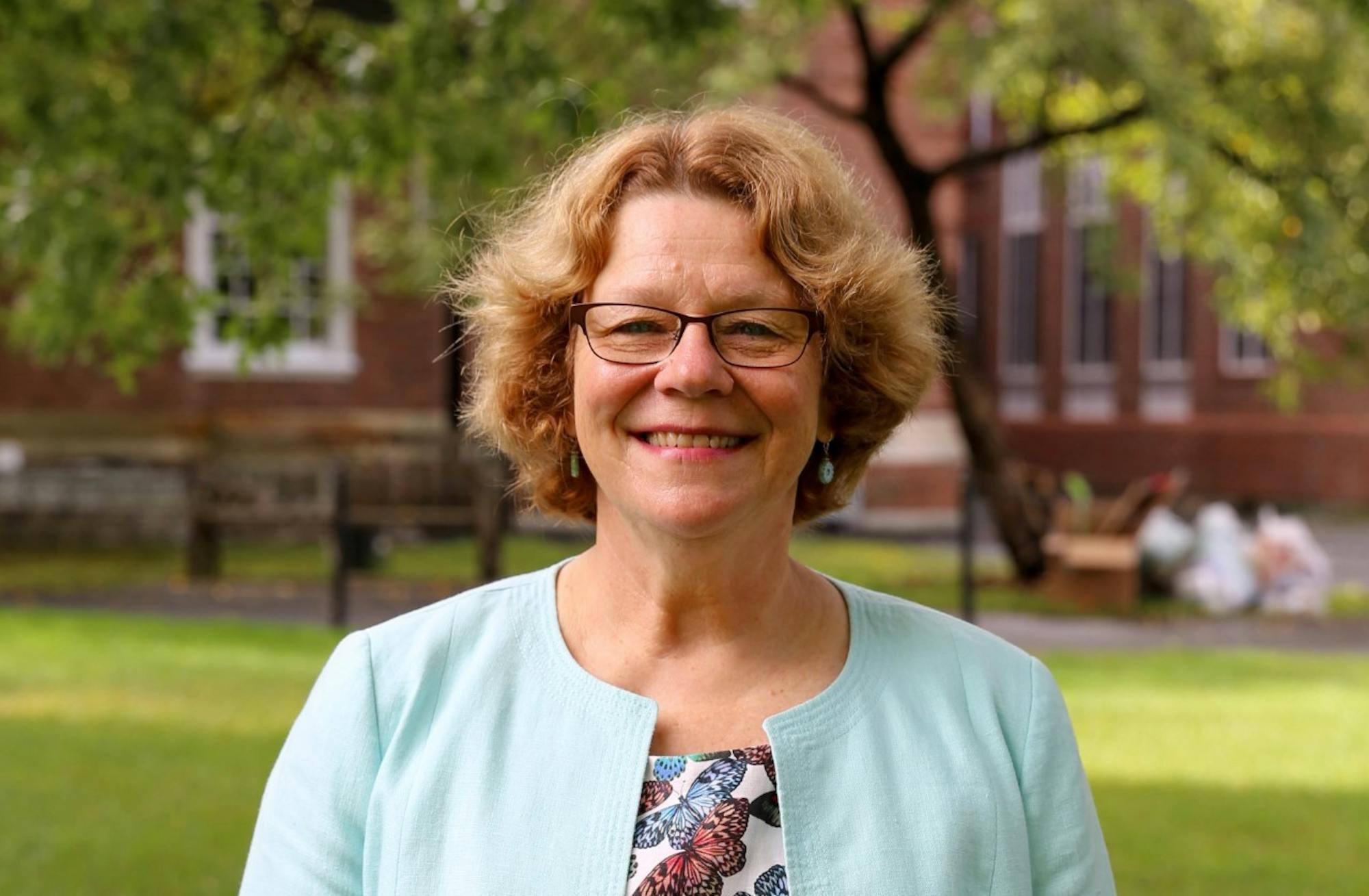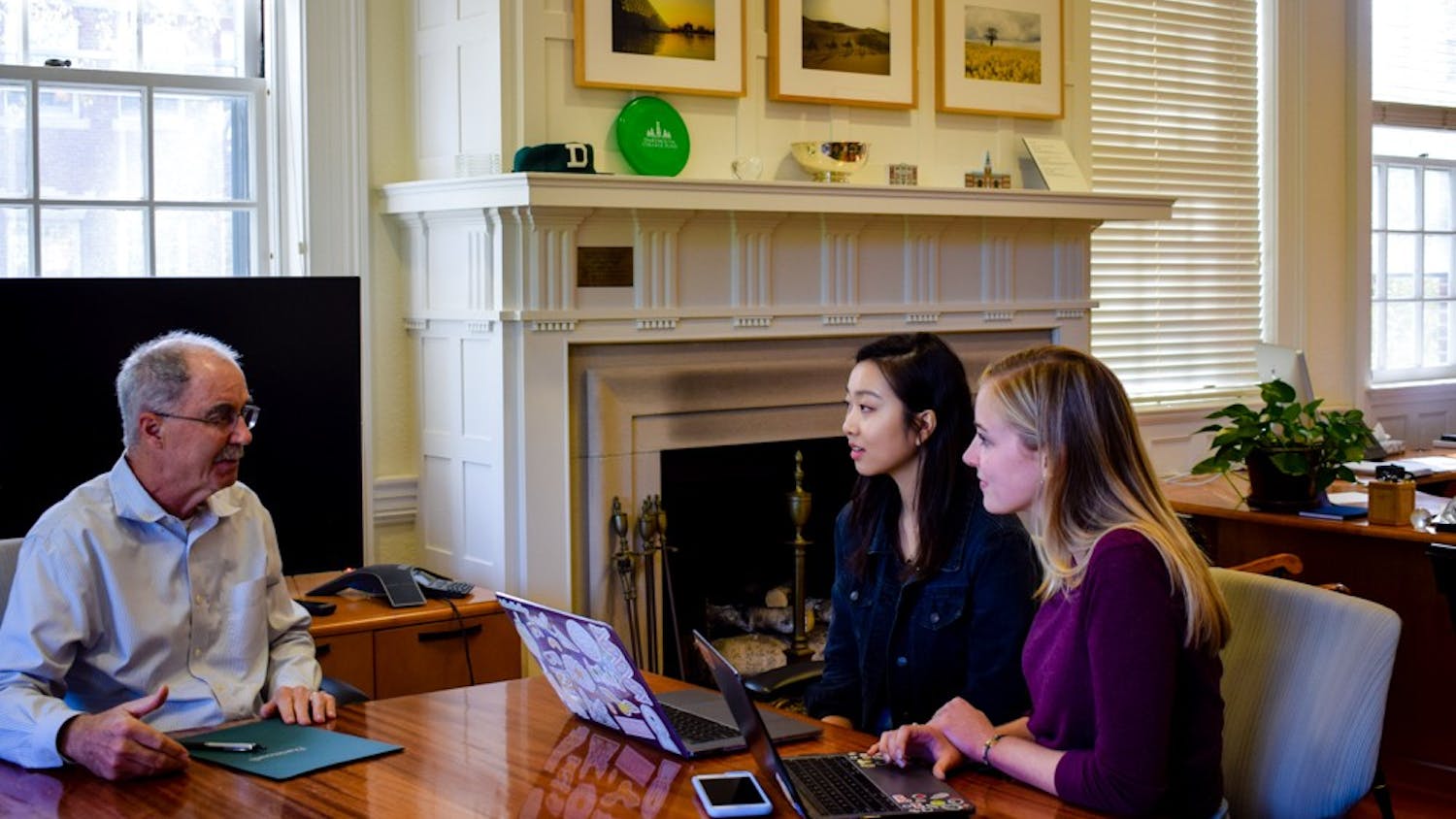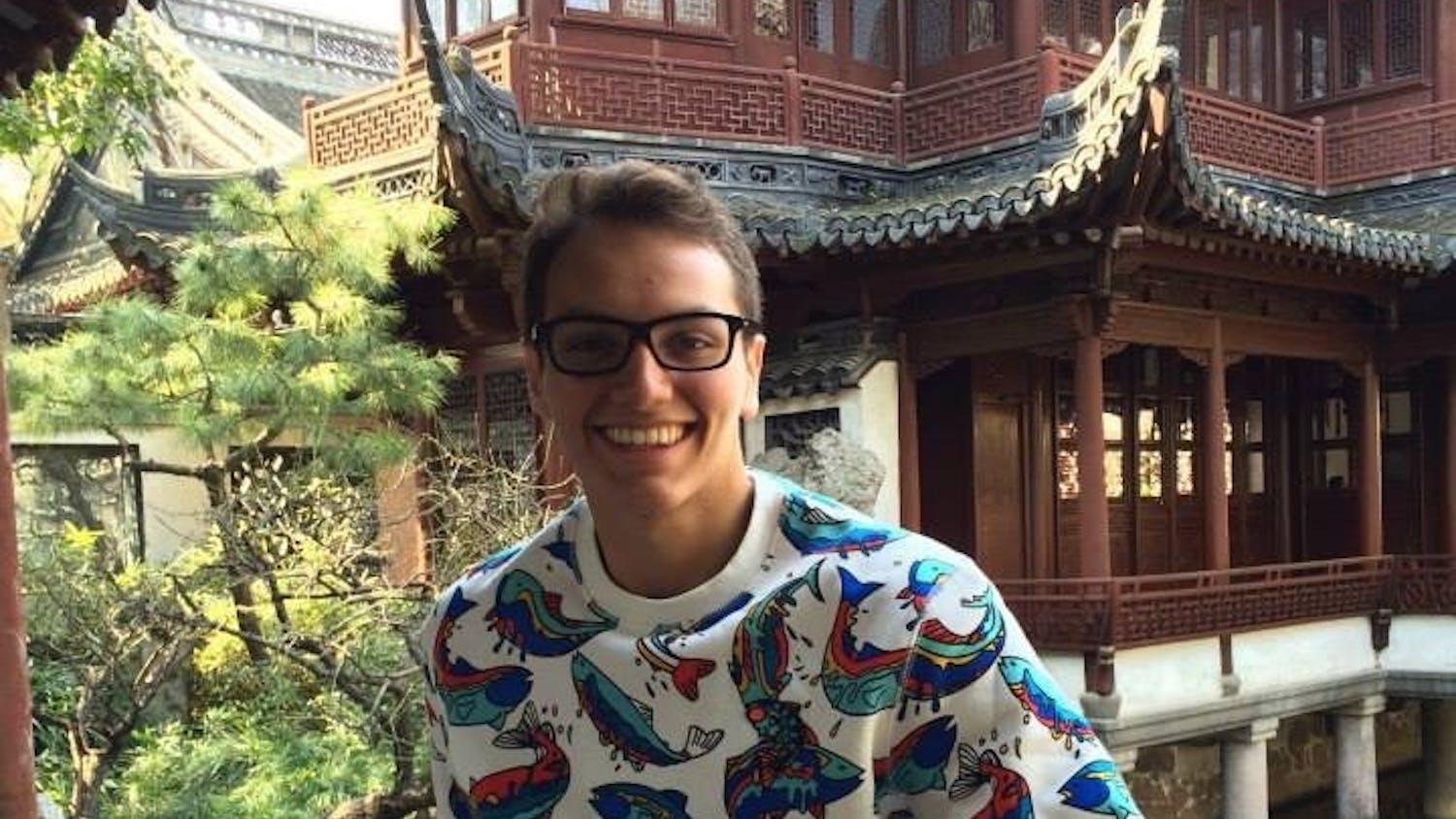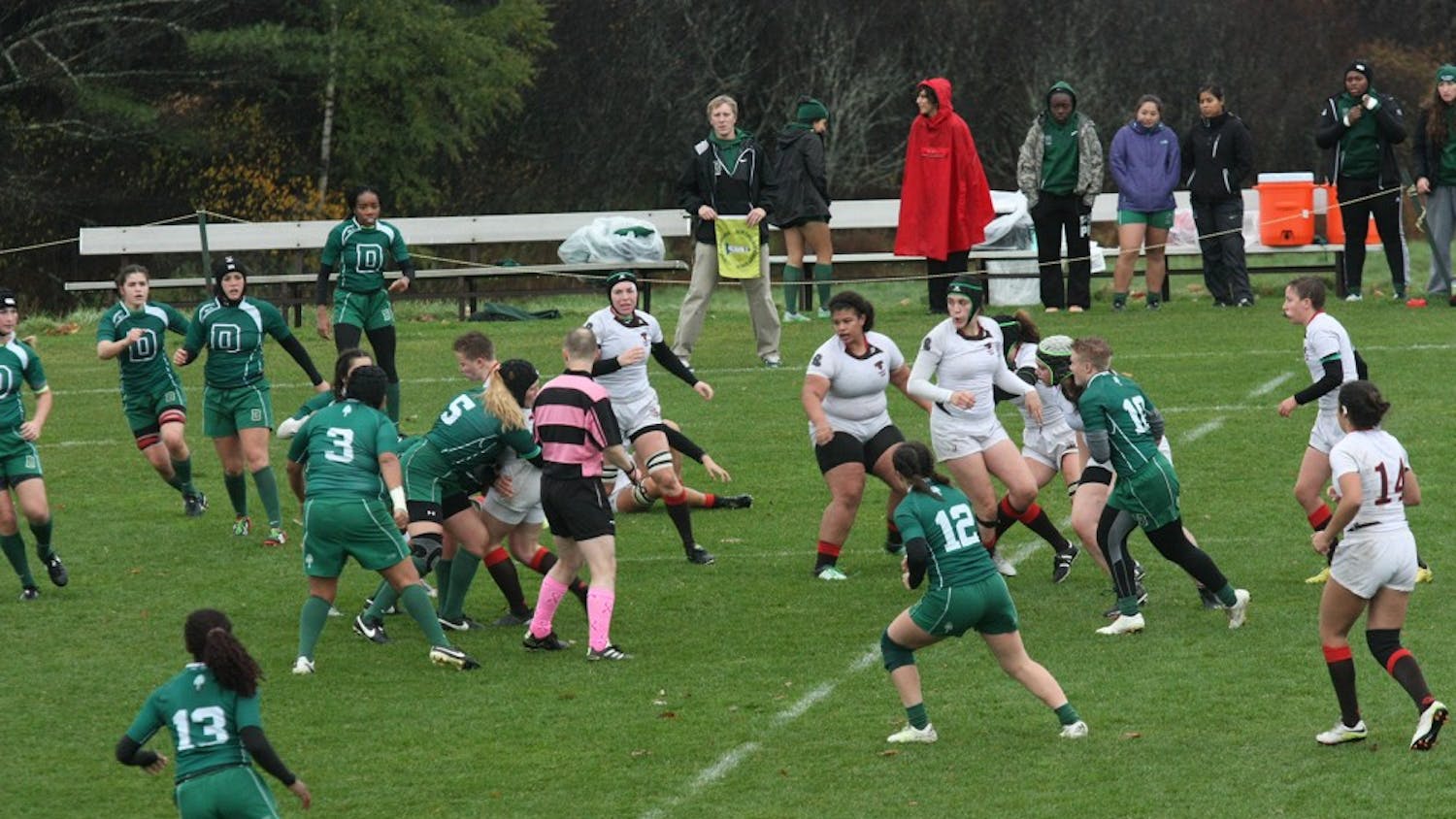Joanne Needham, program officer for public programs and special events for the Rockefeller Center for Public Policy, is retiring next month after a long career in a variety of fields. After earning her bachelor’s degree in mathematics from Fairfield University, she worked in computer programming and project management at Houghton Mifflin, copy edited at the Journal of Neurosurgery and planned conferences at the Global Health Council. After being hired by the Rockefeller Center in 2011, she helped plan a 2011 Republican presidential debate that occurred at Dartmouth the next year. Over the course of her time at Dartmouth, she worked with invited speakers at the Rockefeller Center. Needham sat down with The Dartmouth to reflect on her career.
Why did you decide to come work at the Rockefeller Center?
JN: I knew deputy director Sadhana Hall from my last position, which was the manager of the annual conference at the Global Health Council. But they had decided to shut down their Vermont office and move it to DC. So, I was looking for a new position, and Sadhana said that there was a position open at the Rockefeller Center and encouraged me to come in. That’s why I came in and said, “This is fantastic.” And because I did the annual conference at the Global Health Council — which were panels and plenary speakers and people who had a message or information to convey to others that would help them and impact their lives — it was a very nice segue from the Global Health Council to domestic public policy.
Do you have a favorite part of the job here?
JN: I have two. I think my favorite part of the job is providing the opportunity for not only the Dartmouth community, but the external local community to become more informed about crucial social justice issues or public policy issues. That is my favorite part: knowing that I’m providing or helping to provide those opportunities. Meeting these speakers is a tremendous opportunity for me and I love it. Most of the speakers have been very — not only knowledgeable because I expect them to be knowledgeable — but very accessible to the students, to faculty, to staff — they want to be here. Sometimes when they see their schedule and they’re doing a class visit, a student lunch, a public event and a faculty dinner, they think, “Oh my goodness, this is packed.” But, by the end of the day, they say, “This was a great day.” And you know what their favorite part is almost all the time? The student engagement. I always say I have the best job on campus because I work with a lot of different speakers from across the board.
Have you had a favorite event or speaker that you’ve had come in across the years?
JN: Well, besides Alice Rivlin, just recently, Arthur Brooks came to speak. The first time he spoke here, he was the president of the American Enterprise Institute. It was a big snow storm the day that he came. I said, “I don’t know how many people are actually going to come out for this.” It was in Filene Auditorium, which is a room that holds 220 people. And he said to me, “If 10 people show up, we’re going to have the best seminar ever.” I realized throughout his talk — which 80 people made it through the storm to come to — that what he was saying was something that I think everybody needed to hear: that you approach things with warmheartedness, with kindness, and that you acknowledge somebody else’s opinion. Doesn’t mean you have to agree with it, but you need to acknowledge it and say, “I disagree or I agree,” but don’t not listen to somebody. His whole talk was about uniting America, and I know that there were people in the audience who are on both sides of the coin. There were liberals, and there were conservatives. Every person in there was engaged in his talk, and I think that’s one of my favorites, at least in recent years.
Do you have any other favorite memories from your time here?
JN: Over the course of eight years, I’ve learned a lot about how higher education is changing. I have noticed firsthand at the Rockefeller Center that experiential learning is really important and that there’s courses that are being developed that have that component to it. One of the things that I appreciate most about the Rockefeller Center is the fact that you have some interdisciplinary courses that are taught, these really hands-on experiences, in some of our programming — the First-Year Fellows are in DC, for an eight-week placement as rising sophomores. That’s their first contact or jump into public policy. Those the kind of things that are my greatest memories: Seeing students grow with all of our co-curricular programs — our leadership development and management development programs — and you just see students go through four years and really develop some skills that will give them a leg up when they get out of Dartmouth, or even on campus as leaders. I love that.
What have you learned about the nature of public policy making through your time here, and have you seen a change in how it’s being approached?
JN: Well, it’s been interesting because, as I’ve been here, the divisiveness in Congress has increased, and that makes the effectiveness of trying to change public policy even more difficult. I mean it’s always hard to effect change, but to try to do something when everybody’s so divided — I have noticed a distinct difference in that. What I have also noticed is that there’s never a lack of interest in trying to do that. I have been really grateful to see students who come in here as first-year students really wanting to make an impact and learn more about how they might be able to do that or even figure out what public policy is. It’s interesting because we’re a domestic policy center per se, but you can’t always separate that from global policy. I’ve noticed that since we started this global policy practicum, students go to different countries during winterim and spend fall term in a course about different issues and the country they are set to visit. I see that each year — there’s a new group of students that goes over to a different country for research, so applying some of the policy that we have in the United States or throughout the world in this global practicum gives these students a heads up or the experience of, “How do you apply that in a new situation?”
Do you have any post-retirement plans that you’re thinking of currently?
JN: I do have some. I am a rabid Dartmouth women’s basketball fan. So, my last day here is Dec. 2, and Dec. 3, I fly to Chicago to go to two games that they’re playing there. They have a program called “Taking Their Players Home.” One of their seniors is from Chicago, so they go to their hometown and play in a tournament. Last year they went to Vegas, so I made the trip. I’m hoping to work part-time at the Dartmouth Skiway, where my husband works in retirement. I’m coming back to attend as many public programs as I can all over campus. I never want to stop learning about what’s going on in the world or how I can be a more informed citizen. Plus, I want more time with my mom. My dad just passed in September. He was 91, almost 92. My mom is living in Massachusetts, so I want to spend some more time with her. She’s the nicest person I know.
This interview has been edited and condensed for clarity and length.




